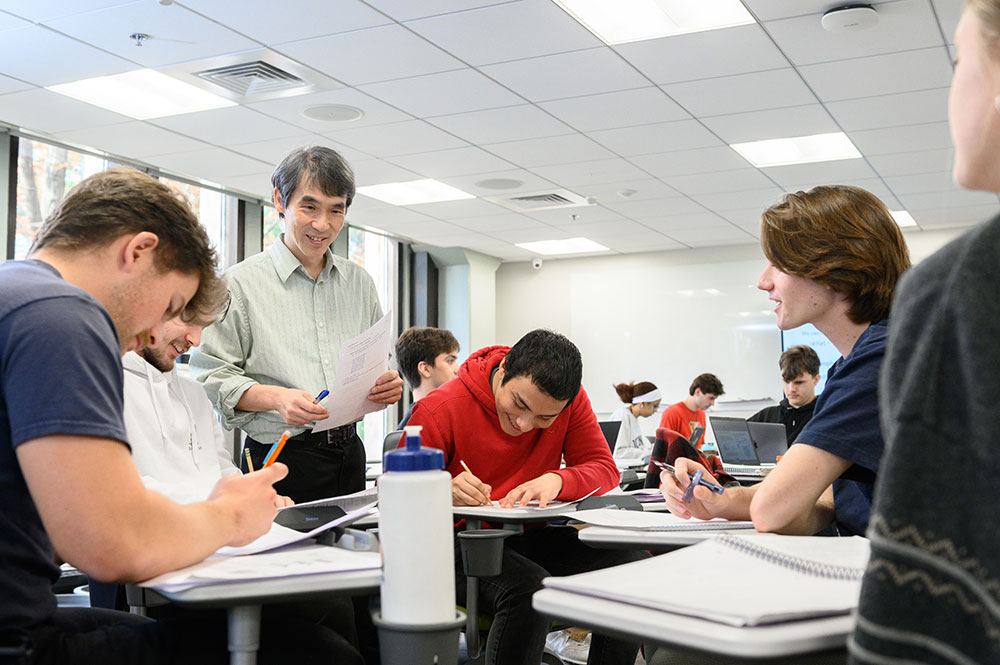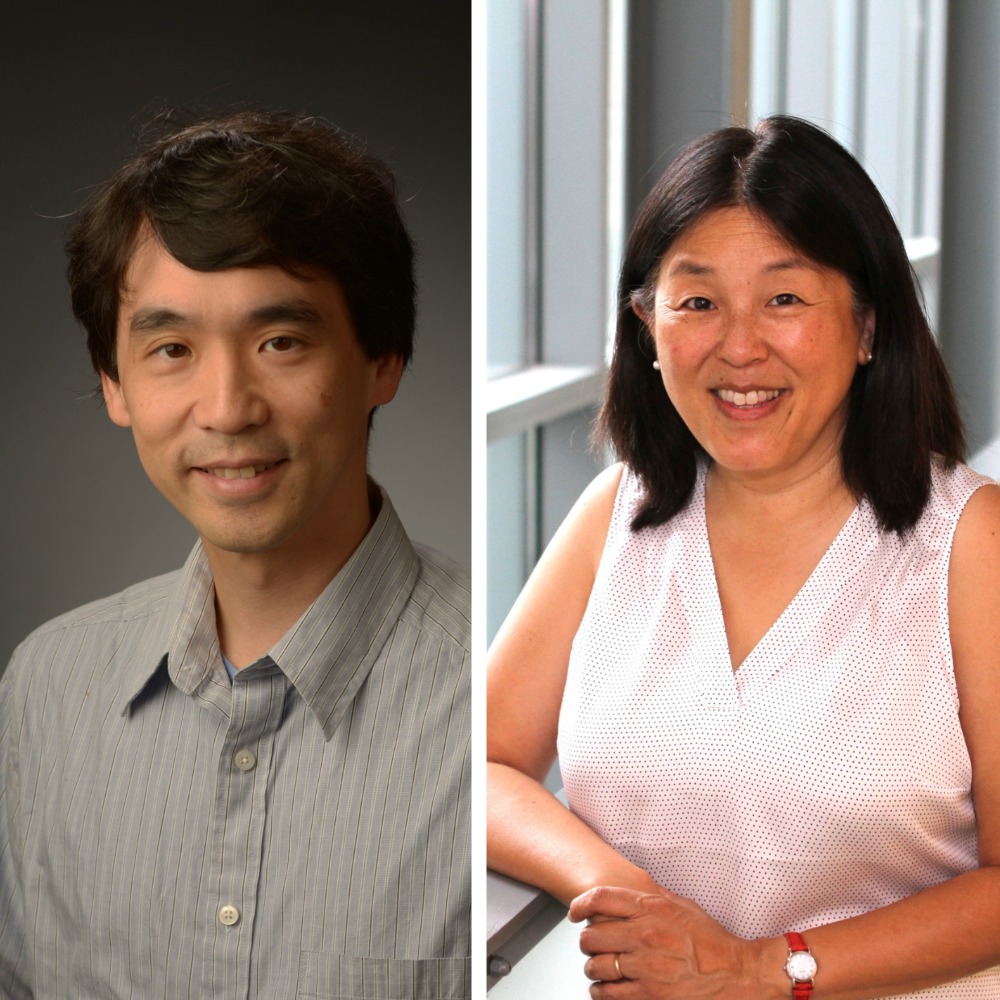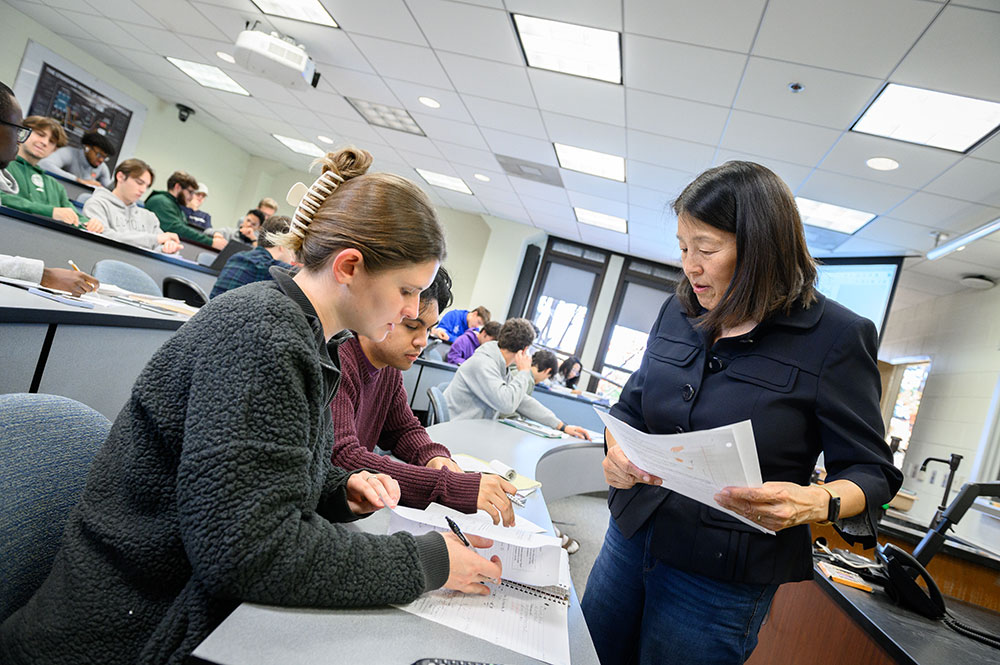Loyola professors receive nearly $400K grant for research on enhancing student learning in quantum computing

David Hoe, Ph.D., associate professor of engineering, and Mary L. Lowe, Ph.D., professor of physics, have received a nearly $400,000 grant from the U.S. National Science Foundation.
 The $398,804, three-year grant will support the development of active learning instructional
materials for two courses offered in quantum computing: Introduction to Quantum Computing
and Quantum Computing II, which will focus on quantum machine learning and quantum
computing applied to quantum chemistry. The courses are targeted at undergraduates
majoring in physics, engineering, computer science, data science, math, and chemistry.
The $398,804, three-year grant will support the development of active learning instructional
materials for two courses offered in quantum computing: Introduction to Quantum Computing
and Quantum Computing II, which will focus on quantum machine learning and quantum
computing applied to quantum chemistry. The courses are targeted at undergraduates
majoring in physics, engineering, computer science, data science, math, and chemistry.
“When you look at most textbooks, they’re a little too technical for teaching a broad range of STEM undergraduates,” explained Lowe. “You want to engage students more in the classroom by incorporating active learning methods where students can talk and work on exercises in class.”

Course materials developed during the grant will be made available on a website and accessible to working scientists, engineers, and faculty from other institutions, which may enhance the infrastructure for U.S. education.
For the next three summers Loyola will host faculty development workshops as part of the grant. The workshops will include a travel stipend to allow Loyola to host eight external faculty to attend and learn how to implement these quantum computing modules in their home institutions. The principal investigators, Hoe and Lowe, will also travel to other conferences to give workshops and presentations.
While the grant research will primarily help address the need to train the next generation of workers in quantum information science and technology, students may also be strengthened in basic STEM subjects, including programming, artificial intelligence, molecular structure, and quantum mechanics.
“These grants don’t happen in a vacuum; we have been working towards this for a few years,” shared Hoe. “We taught the introductory quantum computing class a couple of times beginning in spring 2023 and have also published conference research papers about developing undergraduate courses in QC. Now with the grant, we are looking to take it to that next level.”
Hoe earned his Ph.D. in Electrical Engineering from the University of Toronto. His areas of specialization include high-performance computing and circuit design using nanotechnology.
Lowe earned her Ph.D. from the University of Pennsylvania. Her areas of interest include fluid dynamics, biophysics, physics of medicine, and robots in the introductory labs.
About the Natural and Applied Sciences
The division of natural and applied sciences at Loyola engages its students through excellence in the study of biology, biochemistry, biohealth, chemistry, computer science, data science, engineering, environmental science and studies, forensic science, mathematical and statistical science, nursing, and physics. Students learn to become adaptive learners and ethical leaders ready to serve in a diverse and changing world.
About NSF
The U.S. National Science Foundation is an independent federal agency that supports science and engineering in all 50 states and U.S. territories. NSF was established in 1950 by Congress to promote the progress of science; advance national health, prosperity and welfare; and secure the national defense. The NSF fulfills its mission chiefly by making grants.